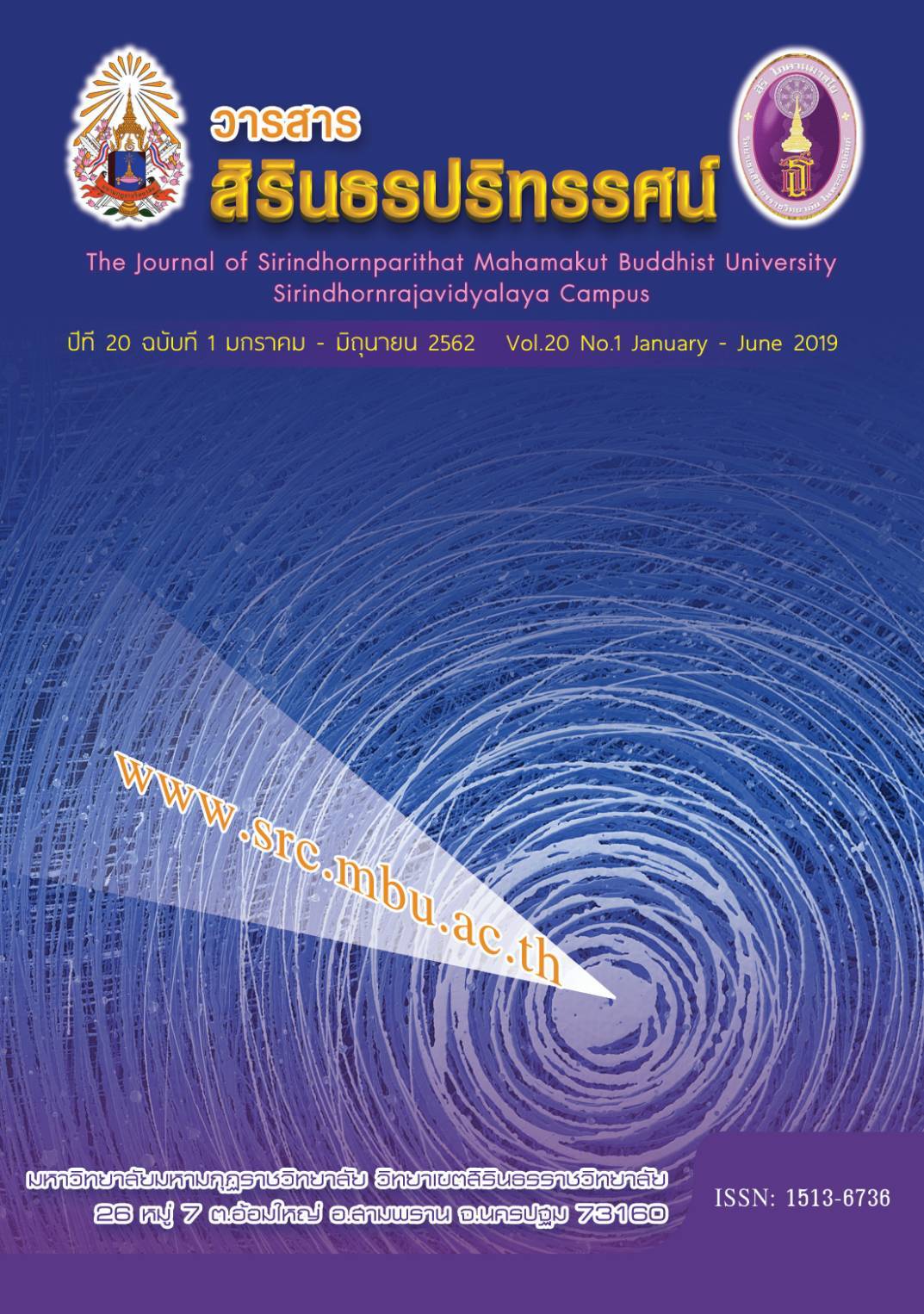An Analytical Study of the Organization Administration by the Principle of Good Governance according to Buddhist Approach
Abstract
The objectives of this thematic paper are as follows: 1) to study the Organization Administration by the Principle of Good Governance, 2) to study the Organization Administration by the Principle of Good Governance according to Buddhist Approach and 3) to analyze the value of the Organization Administration by the Principle of Good Governance according to Buddhist Approach. This research is a qualitative study, focused on documentaries, studies mainly on the Tipitaka, documentaries relating and works of Buddhist scholars and the consultation of the advisors. All the data are classified into system, concluded and presented in descriptive analysis.
The results of research are found as follows:
1. The Principle of Good Governance for the Organization Administration is the good method for the management of the whole country including public sector, business sector, private sector and people sector to achieve the everyone happiness and well-being by the six principles as follows:- (1) the principle of law, (2) the principle of virtue, (3) the principle of openness and transparency (4) the principle of participation, (5) the principle of accountability and (6) the principle of effectiveness.
2. The Organization Administration by the Principle of Good Governance according to Buddhist Approach is the management of the organization following the Buddhist Doctrines to achieve effectively the given objectives including Brahmavihara 4, Iddhipada 4, Sappurisa- dhamma 7, Noble Eightfold Path and Raja-dhamma.
3. The results of the analysis of the values of the Organization Administration by the Principle of Good Governance according to Buddhist Approach are the value of the justice, the value of the reduction of the inequality and the value of the efficiency and effectiveness in the organization.
References
ถวิลวดี บุรีกุล. (2558). ธรรมาภิบาล : กลไสำคัญญในการปฏิรูปเพื่อพัฒนาประเทศ. กรุงเทพมหานคร :
สถาบันพระปกเกล้า.
บุษบง ชัยเจริญวัฒนะ. (2546). ตัวชี้วัดธรรมาภิบาล. พิมพ์ครั้งที่ 2. กรุงเทพมหานคร : สถาบันพระปกเกล้า.
พระธรรมโกศาจารย์ (ประยูร ธมฺมจิตฺโต). (2549). พุทธวิธีการบริหาร. กรุงเทพมหานคร : โรงพิมพ์มหาจุฬาลงกรณ ราชวิทยาลัย.
มหาจุฬาลงกรณราชวิทยาลัย. (2539). พระไตรปิฎกภาษาไทย ฉบับมหาจุฬาลงกรณราชวิทยาลัย. กรุงเทพมหานคร : โรงพิมพ์มหาจุฬาลงกรณราชวิทยาลัย.
มหามกุฏราชวิทยาลัย. (2534). พระไตรปิฎกพร้อมอรรถกถา แปล ชุด 91 เล่ม. กรุงเทพมหานคร : โรงพิมพ์ มหามกุฏราชวิทยาลัย.
สวิต มัคราช. (2556). ” ศึกษาเปรียบเทียบการบริหารเชิงพุทธกับหลักธรรมาภิบาล “. วิทยานิพันธพุทธศาสตร์ มหาบัณฑิต. บัณฑิตวิทยาลัย : มหาวิทยาลัยมหาจุฬาลงกรณราชวิทยาลัย.
Downloads
Published
Issue
Section
License
บทความที่ได้รับการตีพิมพ์เป็นลิขสิทธิ์ของ มหาวิทยาลัยมหามกุฏราชวิทยาลัย วิทยาเขตสิรินธรราชวิทยาลัย
ข้อความที่ปรากฏในบทความแต่ละเรื่องในวารสารวิชาการเล่มนี้เป็นความคิดเห็นส่วนตัวของผู้เขียนแต่ละท่านไม่เกี่ยวข้องกับหาวิทยาลัยมหามกุฏราชวิทยาลัย วิทยาเขตสิรินธรราชวิทยาลัย และคณาจารย์ท่านอื่นๆในมหาวิทยาลัยฯ แต่อย่างใด ความรับผิดชอบองค์ประกอบทั้งหมดของบทความแต่ละเรื่องเป็นของผู้เขียนแต่ละท่าน หากมีความผิดพลาดใดๆ ผู้เขียนแต่ละท่านจะรับผิดชอบบทความของตนเองแต่ผู้เดียว




